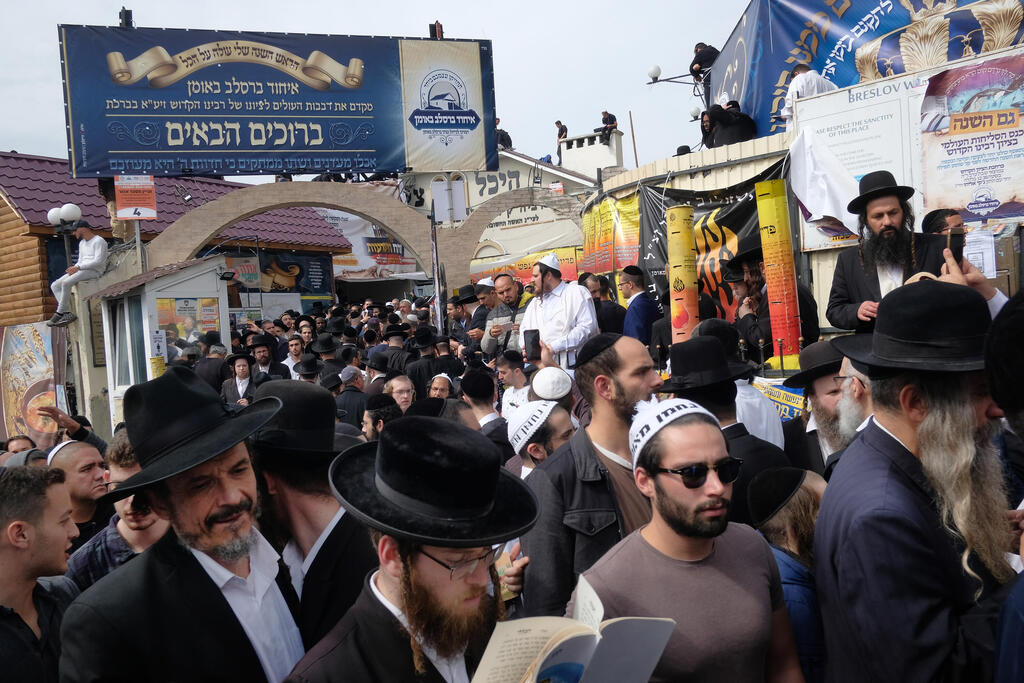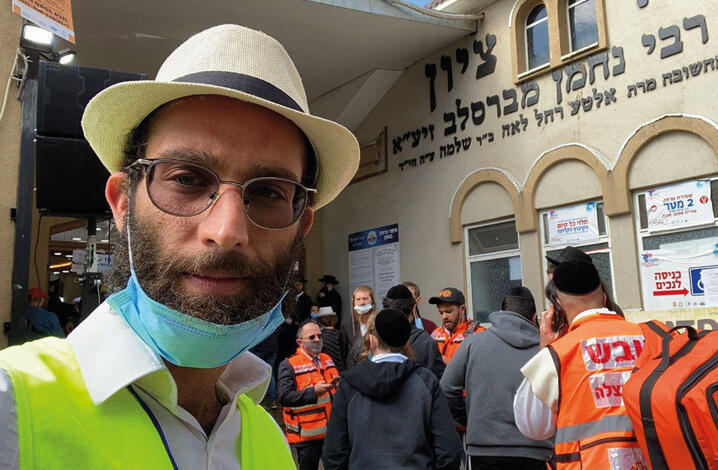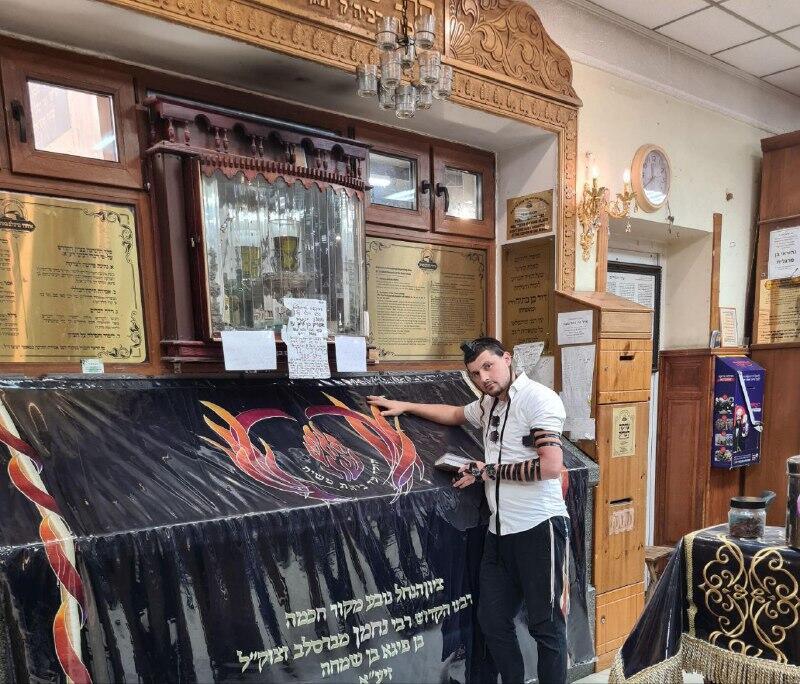Getting your Trinity Audio player ready...
Three weeks before Rosh Hashanah, tens of thousands of Hasidim do not know how they will reach the grave of Rabbi Nachman of Breslov in Uman, Ukraine, which they usually visit annually. The Russia-Ukraine war makes it impossible to fly to Ukraine directly. One solution has been to land in Moldova and travel east. However, Israelis who already purchased a ticket to Moldova recently received an alert saying their flight had been canceled due to crowding at the airport.
As it turns out, the main obstacle is financial. Last year, in coordination between the governments of Israel and Moldova, the border crossings were bolstered to accommodate the tens of thousands of people who made their way to Uman. This year, Moldova has stated that this will not happen. The spokesperson of the Moldovan prime minister, Daniel Voda, explained that Israel has yet to repay its debt from last year and that it would not be possible to provide all the Israeli security requirements.
Jews traveled to Uman during COVID
(CTPAHA)
The chief rabbi of Moldova, Pinchas Salzman, is trying to find a way to facilitate the pilgrimage of tens of thousands of Jews to Uman.
"I am surprised by the news, which is completely inconsistent with what was agreed upon between the countries. I am trying to schedule meetings to cancel this decree," the rabbi said. "The State of Israel gave the Moldovans a guarantee to pay the debt. Maybe someone thinks that Israel is weak because of the war and can be blackmailed, but they are wrong."
Moldova's ambassador to Israel, Alex Roitman, denied this claim, saying that Moldova did not receive a letter of commitment from Israel to repay the debt. Furthermore, he said that the Israeli Foreign Ministry refused to negotiate because the Hasidic journey to Rabbi Nachman's grave is a private venture.
The Hasidim of Breslov view this trip as a holy pilgrimage to Rabbi Nachman's grave based on his promise that those who come to it on Rosh Hashanah will be blessed.
"I'm 37 years old, and I've been coming to Uman for Rosh Hashanah since I was three. There's no way I won't come," says Nachman Rabani, a resident of Beitar Illit. "I understand there are problems, but of course it will work out. If not through Moldova, then through Hungary. During COVID, when there were no border crossings at all, we landed in Moldova and from there we crossed the border through rivers and forests in boats and on foot. We traveled last year in the war, and we are not afraid to do it again. The journey is as important as the destination."
Naftali Galhar has been coming to Uman for almost 20 years. "We travel every year, my parents with all my siblings," he said.
Although he spent Shabbat in Uman about a week ago, he understands that Rosh Hashanah will be busier. "The people will travel through Poland, Hungary, Romania, or any other European country, and will arrive by public transportation. They can buy a train ticket for a 25-hour journey until they arrive. There are obstacles on the way that are worth going through and they strengthen the mitzvah for those who come. During COVID, we traveled by boat, swam in a frozen river, and walked for hours. If necessary, we will do it this year as well," he asserted.







